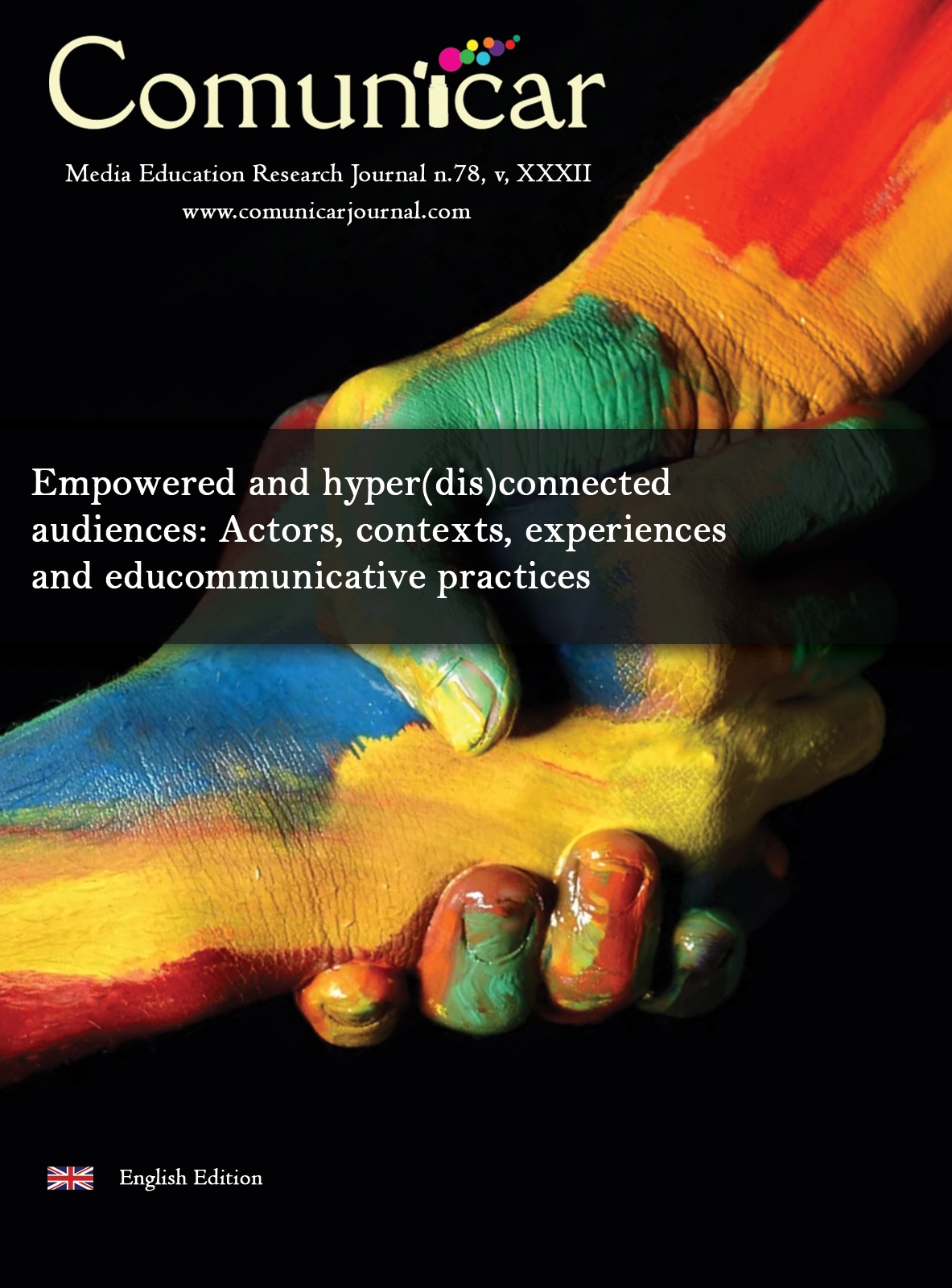仇恨言论与欧洲移民的社会接受度:地理定位推文分析
IF 5.1
1区 文学
Q1 COMMUNICATION
引用次数: 11
摘要
针对弱势群体的仇恨言论被认为是欧洲联盟领土内存在的融合和尊重社会多样性的严重问题。这种言论的增长得到了社会媒体的扩大的支持,社会媒体已被证明是传播针对移民和难民等主要受影响群体之一的目标的犯罪的机制。这就是为什么我们通过研究仇恨言论的存在,对移民和难民的社会接受情况进行了第一次欧洲研究。该研究基于小组间接触和调解小组间接触理论的视角。该方法包括对推特上的在线仇恨言论(n=847978)进行大规模纵向分析(2015-2020年),并与现有官方指标进行对比。结果表明,在当地居民对移民和难民的支持下,个人团体间接触是积极的,但调解的团体间接触与推特上的仇恨言论无关。我们发现的证据表明,在对外国人支持程度较高的地区,推特上的仇恨言论水平较低。这是对各领土仇恨言论研究的进展,可以帮助制定行动战略。对弱势群体的仇恨言论被认为是欧盟内部一体化和尊重社会多样性的一个严重问题。随着社交网络的扩大,这类言论的增加得到了加强,社交网络已被证明是传播针对移民和难民等群体的犯罪的机制,他们是受影响最严重的群体之一。因此,通过研究仇恨言论的存在,讨论了欧洲第一项关于社会接受移民和难民的研究的发展。该研究基于群体间接触和中介群体间接触理论的视角。该方法包括对推特上的在线仇恨言论(n=847978)进行大规模纵向分析(2015-2020年),并与现有官方指标进行对比。结果表明,个人团体间接触与民众对移民和难民的支持呈正相关,但中介团体间接触与仇恨言论的减少无关。我们发现的证据表明,在那些支持集体最多的地区,推特上的仇恨言论水平较低。这标志着对领土仇恨言论的研究取得了进展,并有助于采取行动战略。本文章由计算机程序翻译,如有差异,请以英文原文为准。
Hate speech and social acceptance of migrants in Europe: Analysis of tweets with geolocation
Hate speech against vulnerable groups is acknowledged as a serious problem for integration and respect for the social diversity existing within the territory of the European Union. The growth of this type of discourse has been supported by the expansion of social media, which have been proven to act as a mechanism for the propagation of crimes against targets such as migrants and refugees, one of the main affected groups. That is why we have conducted the first European study of the social acceptance of migrants and refugees by studying the presence of hate speech. The research is based on the perspective of the theories of intergroup contact and mediated intergroup contact. The methodology includes large-scale longitudinal analysis (2015-2020) of online hate speech on Twitter (N=847,978) and its contrast with existing official indicators. The results suggest that personal intergroup contact is positively corretaled with the support of the local population towards migrants and refugees but mediated intergroup contact is not correlated with hate speech on Twitter. We found evidence that those regions where the support for foreigners was higher, there was a lower level of hate speech on Twitter. This is an advance in the study of hate speech by territories and can help in the formulation of action strategies.
El discurso de odio contra públicos vulnerables es reconocido como un grave problema para la integración y el respeto a la diversidad social dentro de la Unión Europea. El aumento de este tipo de discurso se ha visto reforzado con la expansión de las redes sociales, donde se ha demostrado que actúan como mecanismo de propagación de delitos contra colectivos como los migrantes y refugiados, uno de los principales afectados. Por ello se aborda el desarrollo del primer estudio europeo de la aceptación social de migrantes y refugiados mediante el estudio de la presencia de discurso de odio. La investigación se basa en la perspectiva de la teoría del contacto intergrupal y el contacto intergrupal mediado. La metodología incluye el análisis longitudinal (2015-2020) a gran escala del discurso de odio en línea en Twitter (N=847.978) y el contraste con indicadores oficiales existentes. Los resultados apuntan a que el contacto intergrupal personal está correlacionado positivamente con el apoyo de la población hacia migrantes y refugiados, pero el contacto intergrupal mediado no está correlacionado con la disminución del discurso de odio. Encontramos evidencia que muestra que en aquellas regiones en las que el apoyo al colectivo era mayor existía un menor nivel de discurso de odio en Twitter. Esto supone un avance en el estudio del discurso de odio por territorios y puede ayudar en el planteamiento de estrategias de actuación.
求助全文
通过发布文献求助,成功后即可免费获取论文全文。
去求助
来源期刊

Comunicar
Multiple-
CiteScore
10.10
自引率
5.40%
发文量
40
审稿时长
20 weeks
期刊介绍:
Comunicar specialized in educommunication: communication and education, ICT, audiences, new languages...; monographs specialized in current issues. Double format: printed and online; digitally, accessible in full text, free of charge, for the entire scientific community and researchers around the world. Coeditions printed in Spanish and English for the whole world. Published by Oxbridge Publishing House which collaborates with many international centres and universities.
 求助内容:
求助内容: 应助结果提醒方式:
应助结果提醒方式:


